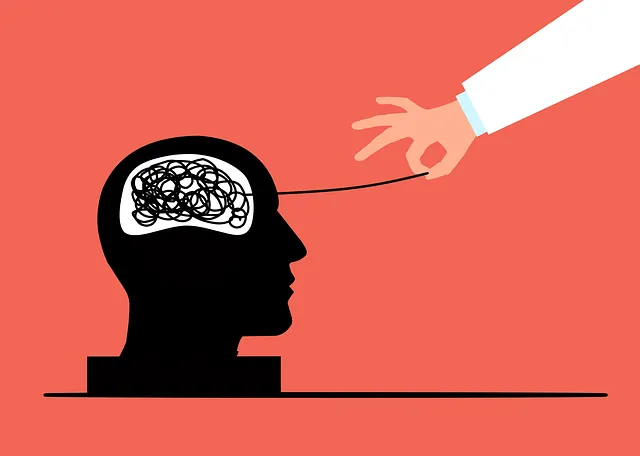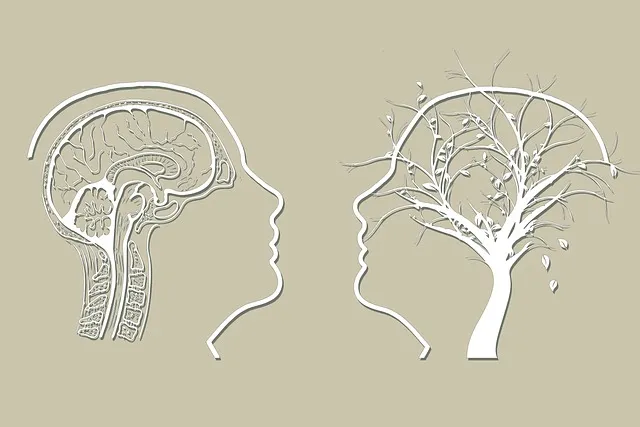The Kaiser Permanente mental health center in Golden prioritizes cultural competency through comprehensive training, going beyond awareness to include communication strategies, compassion practices, and understanding of diverse belief systems related to mental well-being. This initiative aims to create an inclusive environment, improve patient experiences, and enhance health outcomes for all individuals, regardless of their cultural heritage. Through programs like a Mental Wellness Podcast Series and Risk Management Planning, the center equips professionals to meet diverse patient needs effectively, fostering trust and improving clinical outcomes. The goal is to provide tailored quality care that respects and addresses the unique backgrounds of every patient, reflecting the Kaiser Permanente mission.
“Cultural competency in healthcare is no longer an optional consideration; it’s a necessary framework for delivering equitable and effective patient care. This article explores the vital role played by Kaiser Permanente Mental Health Center, Golden, in advancing cultural sensitivity within the healthcare sector. We’ll delve into identifying and overcoming barriers to providing culturally responsive care, along with developing comprehensive training programs and measuring their impact. By embracing these strategies, healthcare providers can ensure that every patient receives personalized, compassionate treatment.”
- Understanding Cultural Competency in Healthcare: A Necessary Framework
- The Role of Kaiser Permanente Mental Health Center, Golden in Advancing Cultural Sensitivity
- Identifying and Overcoming Barriers to Effective Care
- Developing a Comprehensive Training Program: Key Components
- Measuring Success: Evaluating the Impact of Cultural Competency Training
Understanding Cultural Competency in Healthcare: A Necessary Framework

Cultural competency is a vital framework within healthcare, ensuring providers can offer quality care that respects and values diverse cultural backgrounds. In the context of mental health services, this becomes especially critical, as it directly impacts patient trust, engagement, and treatment outcomes. The Kaiser Permanente mental health center in Golden recognizes this need and prioritizes cultural competency training for its staff.
This training goes beyond simple awareness; it involves fostering communication strategies that bridge cultural gaps, cultivating compassion practices to enhance empathy, and incorporating Mind Over Matter principles to promote understanding of diverse belief systems related to mental well-being. By embracing these approaches, healthcare providers can create a more inclusive environment, improving patient experiences and ultimately contributing to better health outcomes for all individuals, regardless of their cultural heritage.
The Role of Kaiser Permanente Mental Health Center, Golden in Advancing Cultural Sensitivity

The Kaiser Permanente Mental Health Center in Golden plays a pivotal role in advancing cultural sensitivity within the healthcare sector. As a leading provider, they understand the significance of addressing diverse cultural needs, ensuring all patients receive personalized care. Through comprehensive training programs, the center equips mental health professionals with the tools to navigate complex cultural landscapes, fostering an inclusive environment.
Their initiatives include the production of a Mental Wellness Podcast Series, which delves into various cultural topics, and Risk Management Planning for Mental Health Professionals, designed to enhance confidence in managing diverse patient populations. By integrating these educational resources, Kaiser Permanente Golden promotes a culture of understanding, enabling healthcare workers to provide enhanced support tailored to individual needs and backgrounds.
Identifying and Overcoming Barriers to Effective Care

Effective healthcare delivery requires addressing barriers that can hinder patient care, especially within diverse communities. Cultural competency training plays a pivotal role in identifying and overcoming these obstacles, ensuring every patient receives quality care tailored to their unique needs. For instance, at Kaiser Permanente mental health centers in Golden, professionals are trained to recognize cultural nuances, including religious beliefs, traditional healing practices, and linguistic differences, which can significantly impact patient interactions and treatment outcomes.
One key area of focus is risk management planning for mental health professionals. By incorporating techniques to manage emotional regulation and promote emotional well-being, healthcare providers can better navigate challenging situations. This includes learning to respond sensitively to patients’ emotional needs, especially when dealing with trauma or cultural taboos related to mental health. Through such training, mental health centers aim to create a supportive environment, foster trust, and ultimately improve patient satisfaction and clinical outcomes.
Developing a Comprehensive Training Program: Key Components

Developing a comprehensive cultural competency training program for healthcare providers is an essential step toward ensuring equitable and empathetic care. At Kaiser Permanente mental health centers, such as the Golden location, this initiative goes beyond surface-level awareness; it involves fostering a deep understanding of diverse cultures, backgrounds, and experiences to enhance patient interactions. The key components of such a program should include interactive workshops focusing on topics like crisis intervention guidance and compassion cultivation practices. These sessions encourage role-playing scenarios, cultural case studies, and peer discussions, enabling healthcare professionals to develop practical skills for navigating complex situations with sensitivity.
Additionally, incorporating positive thinking techniques within the training curriculum can significantly impact providers’ well-being and, consequently, their ability to connect with patients from various cultures. By teaching mindfulness exercises, stress management strategies, and reframing negative thoughts, healthcare workers can improve their emotional resilience, making them better equipped to handle challenging interactions. A holistic approach that balances theoretical knowledge with practical tools ensures that cultural competency training is not just informative but transformative for the entire mental health center team.
Measuring Success: Evaluating the Impact of Cultural Competency Training

Evaluating the success of cultural competency training is a multifaceted process that goes beyond mere knowledge retention. At Kaiser Permanente mental health centers, like the one in Golden, success is measured by tangible improvements in patient care and outcomes, as well as provider satisfaction and retention. This includes tracking changes in clinical practices, such as increased use of culturally sensitive interventions and improved diagnostic accuracy among diverse populations.
Beyond these clinical metrics, measuring success involves assessing enhanced public awareness campaigns focused on mental health, particularly within the context of cultural competency. Training programs that foster a deeper understanding of diverse communities’ mental health challenges and strengths contribute to broader Mental Health Awareness initiatives. Additionally, by reducing burnout prevention strategies for healthcare providers, such training can positively impact staff retention rates, thereby strengthening the overall delivery of culturally competent care in diverse settings.
Healthcare provider cultural competency training, as demonstrated by the innovative programs at the Kaiser Permanente Mental Health Center in Golden, is a transformative force in improving patient care and outcomes. By addressing barriers to effective treatment through comprehensive training, healthcare organizations can foster more inclusive and sensitive environments. The success of these initiatives, measured through rigorous evaluation, underscores the importance of cultural competency as a game-changer in modern healthcare, ensuring all patients receive respectful, quality care tailored to their unique backgrounds.






